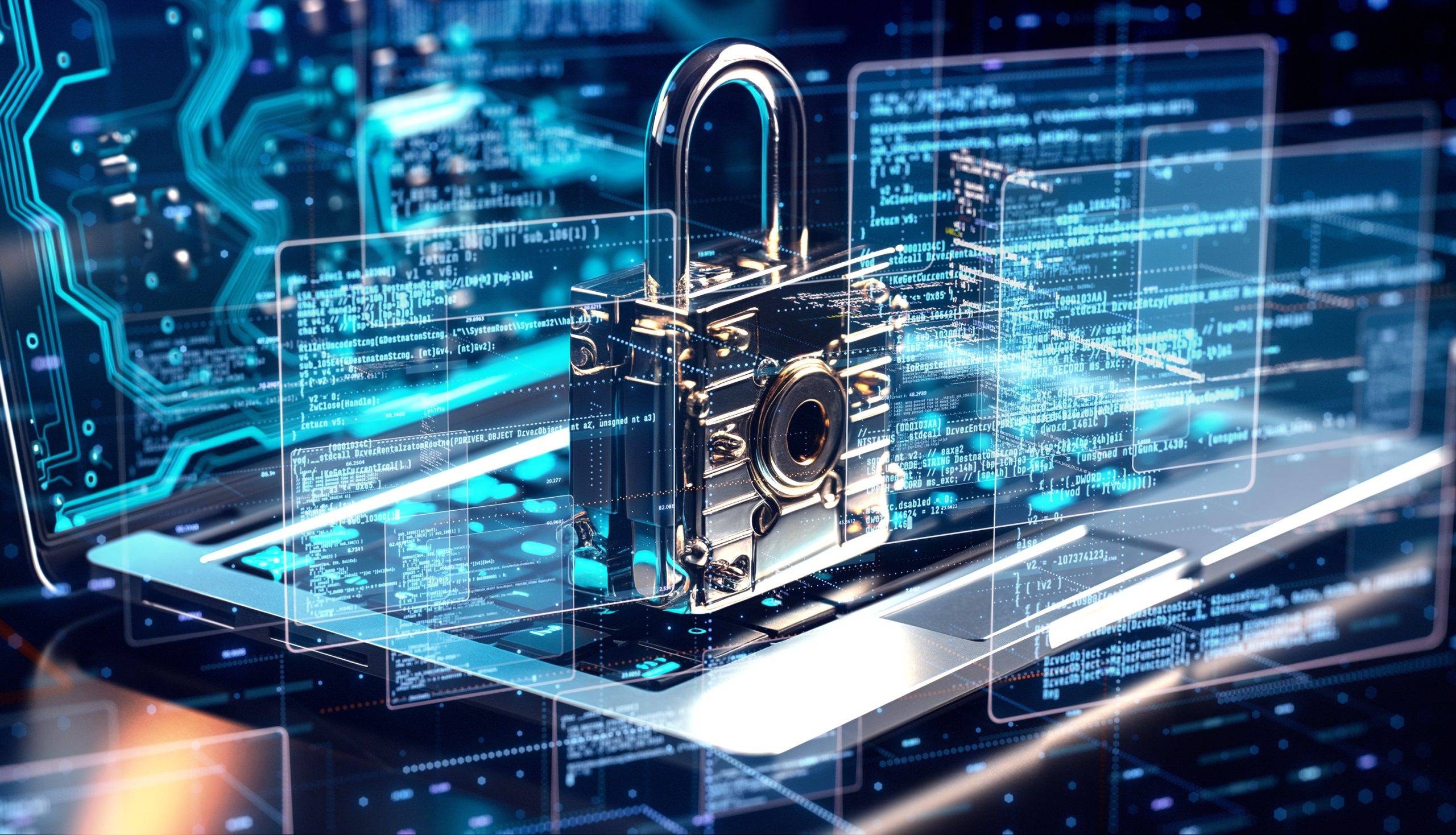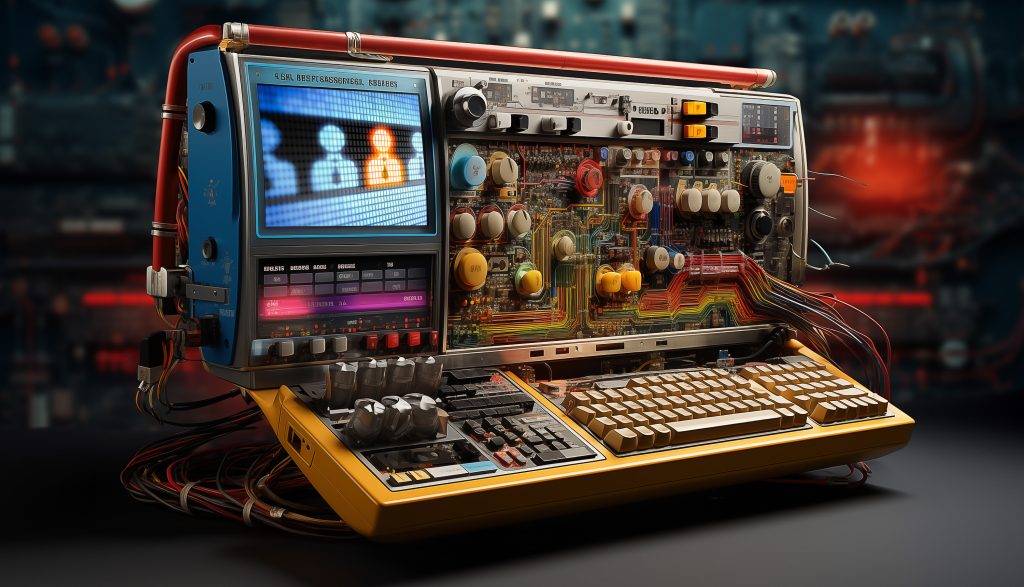
Website security threats are becoming increasingly common, and it is essential to understand the types of threats that can damage a website’s integrity.. The most common types of website security threats include malware and viruses, spam links, and Distributed Denial of Service (DDoS) attacks. Other threats include cross-site scripting (XSS), Structured Query Language (SQL) injection, and phishing attacks. These threats can cause significant damage to a website’s reputation, resulting in financial losses, data breaches, and other security issues.
To ensure website security, it is crucial to follow best practices when developing and maintaining a website. Some of the best practices include using HTTPS to encrypt all data transmitted, requiring strong passwords, and implementing two-factor authentication. Additionally, secure coding practices, regular updates and patches, and the use of SSL/TLS are essential to protect user data[6]. Website owners should also consider regular security scanning to identify and address potential vulnerabilities. By following these best practices, website owners can significantly reduce the risk of security breaches and protect their website and user data.
Regular maintenance and updates are crucial to ensure website security. Regular maintenance should include updating software, content, and security features. Regular maintenance ensures that security measures are up to date, software patches are applied, and potential vulnerabilities are addressed]. It is also essential to monitor the website regularly and perform automated backups]. By performing regular maintenance, website owners can ensure that their website is protected against potential attacks and optimized for performance.
The Central Processing Unit (CPU) is the brain of the computer system, responsible for executing instructions and managing data processing. In terms of website security, the CPU plays a crucial role in maintaining system security. It determines how instructions and significant data are handled to prevent unauthorized access and breaches. A breach in the CPU’s security can lead to devastating consequences, including data theft and system damage. Therefore, it is essential to ensure that the CPU of a computer system is secure to maintain website security.
Random Access Memory (RAM) is another crucial hardware component of a computer system. It serves as the main memory of a computer and provides lightning-fast data access. RAM plays a critical role in website security by storing sensitive data and information. It is crucial to ensure that the RAM is secure since it is where data is kept. Any breach in RAM security can result in data theft, system damage, and unauthorized access. Therefore, it is essential to ensure that the RAM of a computer system is secure to maintain website security.
Input and Output Devices are the hardware components of a computer system that enable users to interact with the system. These devices include keyboards, mice, monitors, and printers. Input and output devices are essential in website security since they facilitate the transfer of data and information. It is crucial to ensure that the input and output devices are secure to prevent data theft and unauthorized access. Cybercriminals can use these devices to gain access to sensitive data and information, leading to devastating consequences. Therefore, it is essential to ensure that the input and output devices of a computer system are secure to maintain website security.
The software components of a computer system can be broadly classified into three categories: Operating System (OS), Application Software, and Utility Software. The Operating System is the most critical software component that acts as an intermediary between the computer hardware and the application software. It is responsible for managing system resources such as memory, processing power, and input/output devices. The OS plays a pivotal role in computer security by maintaining the system’s integrity and ensuring that the system and its resources are used only by authorized individuals and processes. Therefore, it is essential to keep the OS updated with the latest security patches to prevent vulnerabilities and protect against cyber threats.
Web application development has become an essential part of modern business operations, and security in this domain is of utmost importance. Website security involves protecting websites and web applications from unauthorized access, use, modification, or destruction. One of the most critical aspects of web application security is protecting sensitive data and confidential information of users. Security measures include improving security practices in the software development lifecycle and throughout the application lifecycle. Encouraging users to use complex passwords or smart authentication methods can also help prevent vulnerabilities. Additionally, website application security is critical to preventing cyber attacks and mitigating the risk of data fraud and theft.
Several measures can be taken to ensure website security, including the use of a Secure Sockets Layer (SSL) certificate. An SSL certificate adds an additional layer of security between the server and the user, encrypting data exchanges and rendering information inaccessible to hackers. It is also essential to maintain website security by keeping software components updated with the latest security patches and conducting regular security audits. Ensuring website security is crucial to protecting business, brand, and site reputation, as well as preventing financial loss and shutdown. By implementing effective website security measures, businesses can instill confidence in their customers and stakeholders and maintain their reputation in the market.

In today’s digital world, websites play a crucial role in connecting people and businesses. Websites are online platforms that provide information, products, and services to users worldwide. They are designed to be accessible and user-friendly, providing a seamless experience to users. Websites are created using various programming languages and can be hosted on servers worldwide, making them accessible from anywhere with an internet connection. Websites are an essential component of the digital landscape and have revolutionized the way people interact and do business.
RAM, or Random Access Memory, is a critical component of a computer’s performance. RAM is a high-speed, short-term storage solution that provides quick access to important data for applications, games, and the operating system itself. The amount of RAM installed on a computer determines how many programs can run simultaneously and how quickly they can execute. Web browsers, in particular, use a significant amount of RAM to cache web pages, making them load faster when revisited. RAM is a volatile memory bank, meaning that the information stored in it disappears when the power is turned off or when the computer is reset. Understanding the importance of RAM in system performance is crucial for optimizing computer performance.
Storage is another critical component of a computer system. It is the long-term memory bank where data is stored for future use. Storage comes in various forms, including Hard Disk Drives (HDD), Solid-State Drives (SSD), and USB drives. The amount of storage available on a computer determines how much data can be stored and accessed. Storage is essential for managing data, including documents, photos, videos, and other files. While RAM provides quick access to data, storage provides a more permanent solution for data management. Understanding the significance of storage in data management is crucial for maintaining a well-organized and efficient computer system.
The Central Processing Unit (CPU) is the primary component of a computer system that acts as its “control center”. It contains an Arithmetic Logic Unit (ALU) and one or two sets of supporting registers, along with supporting circuitry. The CPU has three main parts: the ALU, the Control Unit (CU), and the Memory Unit. The CPU is responsible for processing input, storing data, and outputting results. It receives input from various sources and performs mathematical and logical operations on the data, allowing the computer to perform its functions.
Random Access Memory (RAM) is another essential hardware component of a computer system. It is where the operating system, application programs, and data in current use are kept, allowing for quick access to this data[6]. RAM is a volatile memory, meaning that the data stored in it is lost when the computer is turned off or loses power. RAM is critical for the computer’s performance, as it allows for quick access to data and programs, enabling the computer to run more efficiently.
Input and Output (I/O) devices are essential components of a computer system that enable users to interact with and communicate with the computer. Input devices allow users to enter data into the computer, while output devices display or transmit data from the computer. Examples of input devices include keyboards, touch screens, and mice. Output devices include printers, speakers, and display screens. The computer monitor is a standard output device that displays text, images, and user interface elements by lighting up thousands of pixels with different colors. By using input and output devices, users can interact with the computer and access the data and programs they need to complete tasks.
The operating system (OS) is the most crucial software component that runs on a computer. It is responsible for managing the computer’s memory and processes, as well as all of its software. The OS performs several essential functions, including process management, memory management, file operations, and input/output operations. The primary components of an operating system include the kernel, device drivers, and system libraries. The kernel is the core component of the operating system that communicates directly with the computer’s hardware, while device drivers provide software interfaces to hardware devices such as printers, scanners, and keyboards. The system libraries provide a set of standard functions and procedures that can be used by other software components.
Application software is another essential software component of a computer system. It is designed to perform specific tasks or functions for the user, such as word processing, spreadsheet calculations, or graphic design. Application software can be customized to meet individual user needs, and there are numerous types of application software available, including productivity software, entertainment software, educational software, and communication software. Application software is typically developed for a specific operating system and is dependent on the underlying hardware and software components.
Utility software is a set of programs designed to help manage, maintain and control computer resources. Examples of utility programs include antivirus software, backup software, and disk tools. Utility software can assist the operating system in optimizing, maintaining, organizing, and managing how it operates. It can help to improve system performance, diagnose and repair system errors, and protect the system from viruses and other malicious software. Utility software is an essential component of a computer system as it helps to ensure that the system is running efficiently and effectively. In conclusion, a computer system is made up of software components that work together to perform specific functions. The operating system is the most crucial software component that manages the computer’s memory and processes, while application software is designed to perform specific tasks or functions for the user. Utility software helps to manage, maintain, and control computer resources and is essential in ensuring that the system is running efficiently and effectively. Understanding the different software components of a computer system is crucial in maintaining and optimizing its performance.

Saving money on web hosting is a common goal for many website owners, especially those who are just starting out or have a tight budget. However, finding a reliable and affordable web hosting provider can be challenging, as there are many factors to consider, such as features, performance, security, and customer support. Fortunately, there is a web hosting service that offers all of these benefits and more at some of the lowest prices on the internet: HostDestin.
HostDestin is a web hosting company that provides high-quality hosting solutions for personal and business websites. HostDestin has been in the industry since 2023 and has earned a reputation for its excellent service, customer satisfaction, and competitive pricing. Here are some of the reasons why HostDestin is a great choice for saving money on web hosting:
HostDestin offers a variety of hosting plans to suit different needs and budgets. Whether you need a basic plan for a simple blog or a premium plan for a large e-commerce site, HostDestin has you covered. You can choose from shared hosting, VPS hosting, dedicated hosting, or cloud hosting, depending on your preferences and requirements. HostDestin also offers a free domain name, a website builder, and advanced tools to help you build a fully functional website.
HostDestin provides fast and reliable hosting performance, thanks to its state-of-the-art servers and network infrastructure. HostDestin uses SSD drives, RAID 10, and LiteSpeed technology to ensure optimal speed and stability for your website. HostDestin also guarantees a 99.9% uptime, which means your website will be online and accessible at all times. HostDestin also offers unlimited bandwidth, storage, and email accounts, so you don’t have to worry about running out of resources or paying extra fees.
HostDestin ensures the security and safety of your website and data, with its advanced security features and measures. HostDestin uses SSL certificates, firewalls, DDoS protection, malware scanning, and daily backups to protect your website from hackers, viruses, and data loss. HostDestin also offers a free migration service, which means you can transfer your existing website from another hosting provider to HostDestin without any hassle or downtime.
HostDestin provides exceptional customer support, with its friendly and knowledgeable staff. HostDestin offers 24/7 support via phone, email, live chat, and ticket system, so you can get help and assistance whenever you need it. HostDestin also has a comprehensive knowledge base, a blog, and a FAQ section, where you can find useful information, tips, and tutorials on web hosting and related topics.
As you can see, HostDestin is a web hosting service that offers a lot of value for your money. With HostDestin, you can enjoy a fast, reliable, secure, and easy-to-use web hosting experience, without breaking the bank. If you are looking for a web hosting provider that can help you save money and grow your online presence, HostDestin is the one for you. Visit their website today and see for yourself why HostDestin is the best web hosting service in the market. At https://hostdestin.com